Categories: Blockchain
AI and DePIN: Technological convergence shaping the future
"AI and DePIN" are revolutionizing the way we manage physical and digital assets. By combining artificial intelligence with decentralized physical infrastructure networks, we achieve unprecedented efficiency, security, and automation, driving innovation and transforming industries globally.
In recent years, AI and DePIN have emerged as two leading technology trends. DePIN - with the power of blockchain, and AI - with outstanding data processing and machine learning capabilities, promises to open up breakthrough solutions, solving real problems in many fields, from security to ownership and access to resources. This article will delve into the resonance between DePIN and AI and explore the potential AI DePIN token projects on the market today.
Table of Contents
DePIN - Combination of crypto and AI
Decentralized physical infrastructure networks (DePINs) are blockchain-based protocols that foster the creation, upkeep, and management of real-world infrastructure through open, decentralized models. Leveraging cryptocurrency tokens as incentives for infrastructure development, DePINs are gaining traction in the AI sector. By utilizing cryptocurrencies to align individual efforts with shared objectives, these networks leverage blockchain technology to maintain a unified state and enable seamless peer-to-peer transactions.
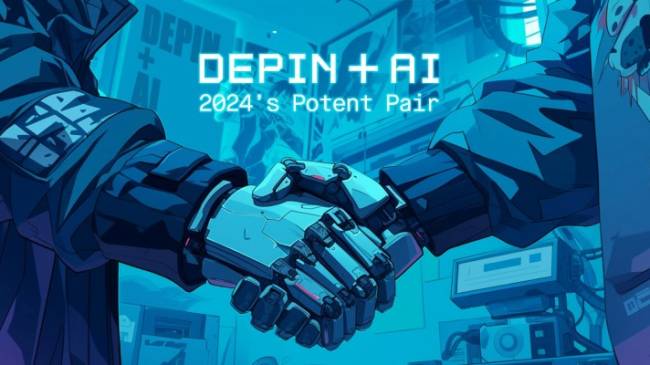
AI infrastructure
AI infrastructure refers to the specialized hardware and software components essential for developing and deploying AI-powered applications and solutions.
The five key components of AI infrastructure are:
- Data storage and management: AI applications rely on vast datasets for training and operation. AI companies utilize either on-premise or cloud-based solutions to effectively store, organize, and access this data.
- Computing resources: Machine learning, deep learning, and other AI applications demand substantial computational power. Specialized hardware, such as graphics processing units (GPUs), is often employed to accelerate data processing for these tasks.
- Data processing frameworks: These frameworks play a crucial role in preparing raw data for AI applications. They encompass tools and processes for cleaning, transforming, and structuring data to ensure its suitability for training and analysis.
- Machine learning frameworks: These comprehensive tools and libraries simplify the development and deployment of machine learning models. They offer functionalities for model design, training, automation, and optimization, streamlining the entire ML workflow.
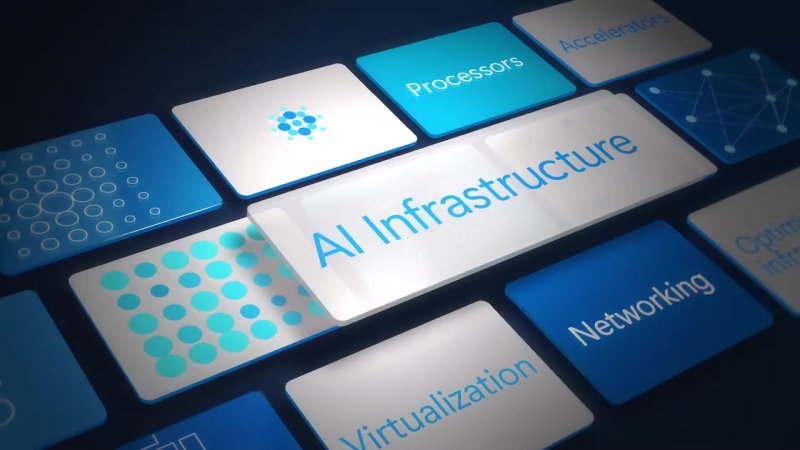
What Are the Benefits of Using DePIN in AI?
By combining the unique strengths of blockchain technology - decentralization, shared control, transparency, and immutability - with AI's transformative potential, DePINs are addressing critical challenges and unlocking new possibilities.
Democratizing access to high-performance computing
The AI boom has made GPU chips a scarce and costly resource. Centralized cloud providers often prioritize large customers, leaving smaller users with limited access to the high-performance computing essential for AI development.
DePINs break down these barriers by providing permissionless access to GPU power and other compute resources. This democratization levels the playing field, fostering innovation by allowing individuals and smaller organizations to participate fully in the AI revolution.
Ensuring data security and resilience
Centralized data storage is vulnerable to single points of failure and malicious attacks.
DePINs utilize decentralized data storage networks, distributing data across a global network of nodes. This enhances data security, prevents data loss, and ensures greater resilience against outages.
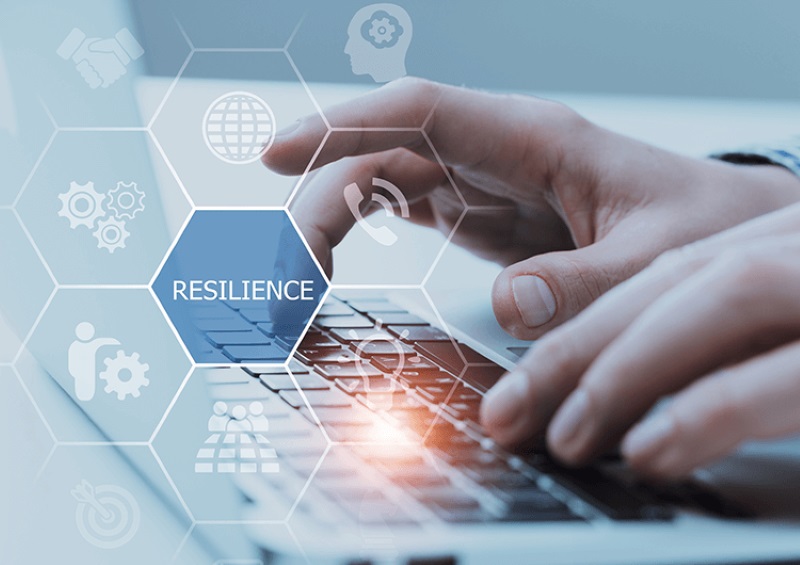
Fostering openness and collaboration
The call for democratizing AI is growing louder. DePINs create an environment where AI development can thrive in a decentralized, open-source manner. This encourages collaboration, reduces entry barriers, and ultimately makes AI solutions more accessible and affordable for everyone.
Empowering intelligent infrastructure
AI is transforming DePINs themselves, creating smarter, more responsive infrastructure systems. Machine learning models are being deployed to predict and analyze patterns, optimize resource allocation, and automate decision-making.
This synergy between AI and DePINs is leading to advancements in areas such as:
- Model Training and Continuous Learning: AI models are trained on vast datasets and continuously learn to adapt to new information, improving their accuracy and relevance.
- Data Privacy: Techniques like differential privacy and federated learning protect sensitive user data while enabling AI models to learn from it.
- Decentralized Governance: AI-driven smart contracts and decision-making tools support transparent and efficient governance within DePIN ecosystems.
The convergence of DePINs and AI has potential. By addressing the challenges of access, security, and collaboration, this powerful combination is set to unleash a new wave of innovation, making AI more inclusive, secure, and impactful for society as a whole.
Best AI DePIN tokens
DePIN is revolutionizing Web3 by leveraging blockchain to build a more transparent and decentralized system. Combining DePIN with AI is reshaping security, ownership, and access to resources. As the market grows, AI-based DePIN tokens are becoming increasingly valuable investment opportunities. Sentiments set to improve, these tokens could be a game-changer for your portfolio.
Render (RNDR )
Render, a pioneering AI-DePIN project and the second largest in its category by market capitalization, aims to democratize access to computing power for AI art generation. As AI development surges, so does the demand for GPU resources, a challenge Render tackles by connecting individuals with spare GPUs to those needing them, incentivizing contributions with its RNDR token.
Beyond facilitating GPU sharing, Render cultivates a thriving ecosystem for developers and artists to create and manage AI-powered applications.
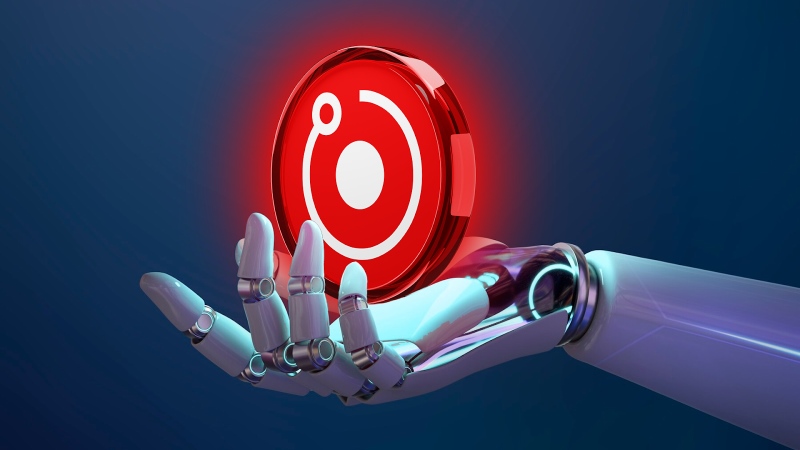
The Graph (GRT)
The Graph (GRT) is a decentralized protocol that revolutionizes data indexing and querying for Web3 applications. Similar to how Amazon Web Services provides indexing for Web2, The Graph acts as a "Google for Web3," organizing and mapping online data for easy access. This is accomplished through AI-powered indexing, organizing data into "subgraphs" for efficient querying, and eliminating the need for centralized services.
GRT, the native token of The Graph, gained recognition as one of the top-performing AI cryptocurrencies in 2023, highlighting its significance and potential in the evolving landscape of decentralized data management.
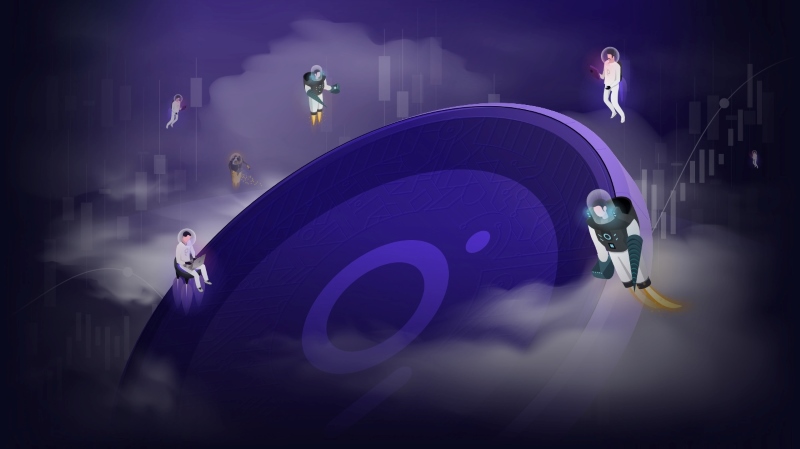
Akash (AKT)
Akash is a leading open-source, decentralized cloud computing platform that revolutionizes how we buy and sell computing resources. Imagine a decentralized version of Microsoft Azure, where individuals and organizations can easily offer their spare computing power, servers, or data centers. Akash empowers users by putting control in their hands, unlike traditional centralized cloud providers.
At the forefront of the DePIN and AI revolution, Akash offers a marketplace specifically for GPUs, the hardware essential for powering gaming and AI projects. This marketplace directly addresses the high demand for computing resources needed to build cutting-edge AI applications.
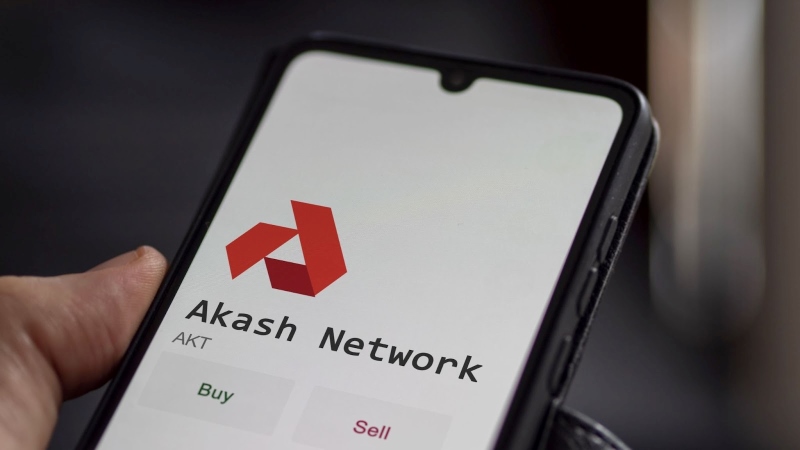
AIOZ Network (AIOZ)
IOZ Network is revolutionizing content delivery and storage with its innovative approach. By utilizing a vast network of decentralized infrastructure providers (DePINs), AIOZ rewards users for contributing their computational power to store, stream, and process digital content, including AI-driven tasks. This not only transforms how content is shared but also fuels the growth of decentralized AI. Their extensive network, comprising over 70,000 nodes and 50 validators, enables them to deliver scalable, decentralized, and cloud-based AI solutions.
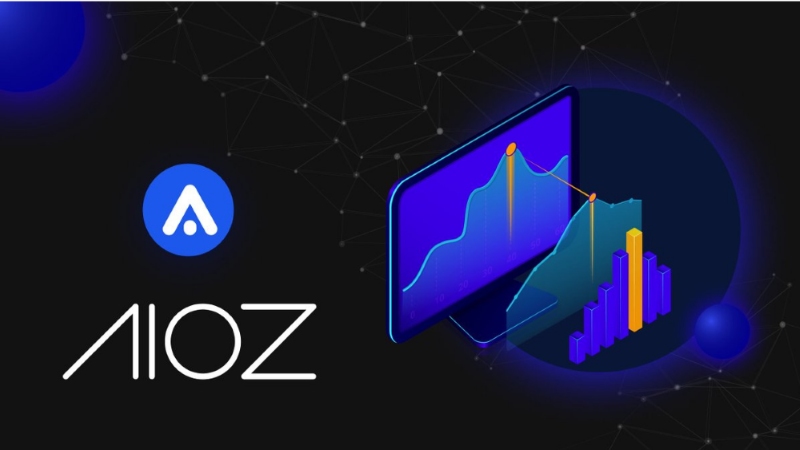
Ocean Protocol (OCEAN)
Ocean Protocol is a decentralized marketplace revolutionizing the lucrative data sector. Here, anyone can monetize their data, providing valuable resources for researchers and companies alike. Data providers maintain full control and ownership of their information while earning rewards in OCEAN, the platform's native cryptocurrency.
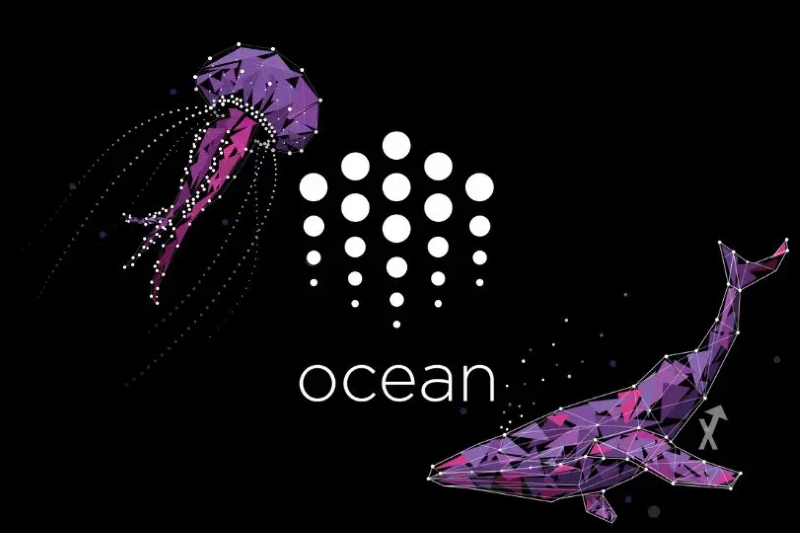
Committed to advancing AI, Ocean Protocol enables access to its benefits for a wider audience. AI platforms and researchers utilize the marketplace to access essential data, and private data can be integrated into AI models, enhancing research capabilities without direct sharing.
In conclusion, AI and DePIN have combined to form a trending market. The intersection of these sectors has led to the creation of unique solutions across various markets. These solutions solve real-world problems across many fields. AI crypto projects have seen impressive adoption recently, and the future looks even brighter. To delve deeper into this exciting frontier and explore the latest advancements in AI and DePIN, visit the website U2U Network for comprehensive insights and updates.
.png)